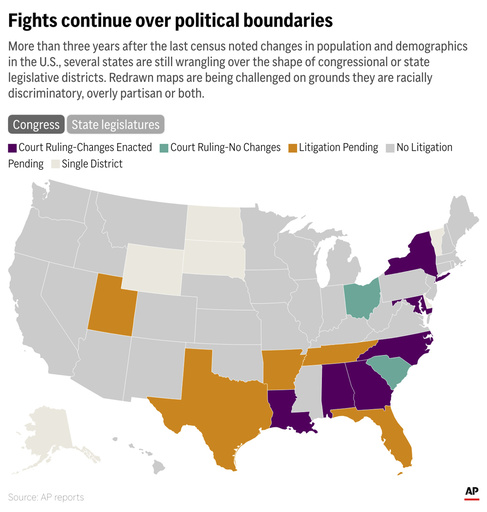State officials in Mississippi have cited the impracticality of redrawing some legislative districts in time for the upcoming November election due to the tight schedule required for preparing ballots. This response comes following a recent ruling by three federal judges instructing the Mississippi House and Senate to adjust certain legislative districts deemed to diminish the influence of Black voters in three areas of the state. The judges’ ruling stemmed from a lawsuit filed in 2022 by the Mississippi State Conference of the NAACP and various Black residents.
The Mississippi Election Commissioners, all Republicans, stated on Wednesday that meeting the August 2 deadline to adopt new districts would require Republican Governor Tate Reeves to convene a special legislative session for legislators to approve the new boundaries. Failure to meet this deadline would necessitate special elections to fill seats for the remainder of the current four-year term, affecting the already scheduled November election for federal and state judicial positions. The Election Commission attorneys highlighted the logistical challenges, emphasizing that creating new boundaries within such a short timeframe is unfeasible.
While the judges’ order does not introduce additional districts but rather calls for adjustments to existing boundaries to ensure better representation for Black voters, the deadline for these changes presents a significant hurdle. Observers like Jarvis Dortch, the executive director of the ACLU of Mississippi and a former state lawmaker, support the judges’ decision, asserting that the current legislative districts have marginalized Black Mississippians’ political voice. The redistricting issue is not exclusive to Mississippi, with similar lawsuits emerging in multiple states contesting the composition of congressional or state legislative districts following the 2020 census.


